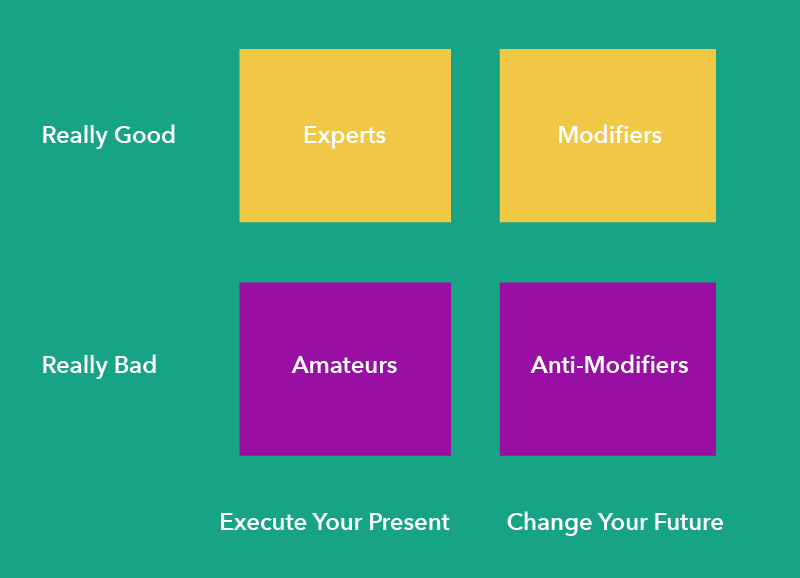
A basic understanding of neuroscience will change your perspective on just about everything.
Here's a starter...
Here's a starter...
First, parts of the brain. Then we will talk about chemicals.
There's a lot of talk about the left vs right brain, but the first thing to know is the inner vs outer brain. The limbic system vs the prefrontal cortex.
The reason we should start here is because when we look at the different kinds of thinkers we come across in daily life, inner/outer thinking comes into play far more often than left/right thinking.
Limbic inner thinkers are emotional, reactive, stubborn, and rigid. This is because they are using the parts of the brain responsible for reacting to rather than contemplating data. The limbic system looks for threats, novelty, alignment to memory, pleasure.
Long before we get to interact with the elite thinking of the logical left and creative right brain (both sides of the prefrontal or dorsolateral cortex), we have to get through the TSA of the limbic system.
And that's where most people are actually stuck. It's why democrats and Republicans can't find common ground. Its why people argue that a point is invalid because it doesn't match their personal experience, as if that is any kind of a legitimate bar to set.
Your knowledge and experience is recorded and recalled by the hippocampus. When you find yourself in a situation, you will feel like that situation is either familiar or unfamiliar based on your experience, knowledge, and training.
Hippocampal thinkers are limited by their training and histories, and struggle immensely with things that don't match their experience or knowledge imparted by reading or trusted sources.
Limbic reactions aren't something we can say is a result of "thinking." It's a result of playing the game we played as kids where we circled the differences between two pictures. One of history and another of the present. These differences become flaws by their very existence.
And not only are those flaws rejected, the person who speaks those flaws will also be rejected almost entirely. Treated as an intellectual enemy.
Limbic thinking is also why people throw out ideas that "feel risky," said that way because no risk has actually been assessed, just felt by the amygdala.
To think and work intelligently, we must push information through this security system of the brain and get it out to our prefrontal cortex, where the only intelligent thinking is done in the brain.
The neocortex is fascinating. Yes there is a left and right, but there are also cool systems, just above your eyeballs, for example, that do things like compare the relative value of choices. Lots of cool and smart things happening up here.
The right brain is the source of creativity. It's like we all own a plane that can go to a certain altitude. Above that, we have no idea what things look like, and we can't even interpret what others have seen. Some people can go to space. Some seem able to visit other galaxies.
This is where my Trust 3 post came from. Trust is what allows us to enjoy the benefits of another person's access to things like creativity, metaphor, inference, transcendent thought, poetic interpretation, artistic meaning, and more.
The left side handles the concrete things. The understanding of systems. The comprehension of cause and effect. Our ability to use this part of the brain seems limited by enjoyment long before ability. Loving to analyze and pick things apart creates an intelligence boost...
...while hating the inconvenience of analysis in lieu of picking a simple explanation and running with it creates the benefit of speed at the cost of significantly lower understanding, ability to optimize, and ability to correct when errors happen.
This is how most of us feel about our cars. We like to know that one pedal is go, the other is stop, and the turny thing makes the car turn too.
But what's our true comprehension? We get to see that when something breaks or could be better.
But what's our true comprehension? We get to see that when something breaks or could be better.
And like with our cars, our comprehension is limited by our preferences long before it's limited by ability. Most of us choose to avoid learning how cars work because it's impractical. Others can't help themselves but dive into learning how it all works.
And that's how it works for everyone and everything. Some people just hate to cross the threshold from acceptance to comprehension, so they suck when it comes to optimizing, explaining, and fixing.
And we will end quickly with chemicals.
This is important. Emotions are not thoughts. They are drugs.
Getting angry is not an idea. It's a chemical called norepinephrine. Adrenaline. And once that little nurse in the brain (the pituitary gland) injects us with it, we are on that ride for 6-8 hours before the liver processes it out of our bloodstream.
So when you're a jerk at work and make someone pissed off (because you ARE a threat if you're being a jerk), it's like you're giving them a drug.
A few hours later when they are unfocused, touchy, and reactive, is it fair to get pissed at them?
A few hours later when they are unfocused, touchy, and reactive, is it fair to get pissed at them?
Would you give someone LSD and then be mad a few hours later if they were still seeing laser cats in the sky? No, because there's nothing they can do until their liver is done getting rid of the drug.
And this is why culture is key.
Cultures decide how much of that drug that makes us reactive and dumb and impulsive ends up coursing through our organizational veins every day.
Later we will get to other chemicals. My thumbs are tired.
• • •
Missing some Tweet in this thread? You can try to
force a refresh



